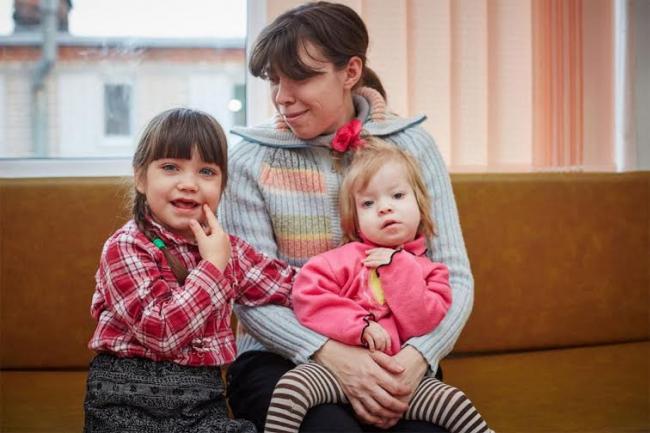
As shelling batters Ukraine's cities, country's children increasingly in danger-UN
In a press release issued earlier today, UNICEF noted that since September, thousands of people in war-torn Donetsk had been spending most of their days and nights in at least 12 bomb shelters with little or no access to water, hygiene, sanitation or food. Among them, the UN agency added, were an estimated 1,000 children who regularly sought refuge from the heavy shelling.
“The most vulnerable are those who are forced to seek refuge in unsanitary, crowded and freezing cellars and bomb shelters, children living on the streets, and those who come from poor families or whose homes have been severely damaged,” UNICEF Representative in Ukraine, Giovanna Barberis, explained.
“UNICEF reminds all parties to the conflict in Ukraine to keep children out of harm's way,” Ms. Barberis continued. “We also urge the international community to act now to provide the thousands of children affected with the basic assistance they need.”
In late February 2014, the situation in Ukraine transcended what was initially seen as an internal Ukrainian political crisis into violent clashes in parts of the country, later reaching full- scale conflict in the east. A cease-fire and peace plan for eastern Ukraine was signed in the Belarussian capital of Minsk on 5 September, but remains fragile. The situation has since continuously deteriorated, with serious consequences for the country's unity, territorial integrity and stability.
Ms. Barberis reiterated her concern for the safety of Ukraine's children – including the 1.7 million affected by the conflict – in a separate phone conversation with UNICEF spokesperson, Christophe Boulierac, during a press conference in Geneva. She noted that the recent shelling in Mariupol, which claimed the lives of two children and injured another seven, had further underlined the urgent need for an end to the violence and the provision of a scaled up humanitarian response.
In addition, she said, Ukraine's children were increasingly vulnerable to psychological damage as well as infection from various diseases due to the lack of hygiene and vaccines. Answering a question from a reporter, she admitted that barely 50 per cent of the 7.9 million Ukrainian children had been properly vaccinated against polio, rendering them susceptible to contagion.
Also speaking from Geneva, Rupert Colville, a spokesperson for the Office of the High Commissioner for Human Rights (OHCHR), revealed the latest casualty figures gleaned from UN data. As of 26 January, he said, a total of at least 5,187 people had been killed in the continuing conflict and 11,550 had been wounded.
Photo: UNICEF/NYHQ2014-3166/Zmey
Support Our Journalism
We cannot do without you.. your contribution supports unbiased journalism
IBNS is not driven by any ism- not wokeism, not racism, not skewed secularism, not hyper right-wing or left liberal ideals, nor by any hardline religious beliefs or hyper nationalism. We want to serve you good old objective news, as they are. We do not judge or preach. We let people decide for themselves. We only try to present factual and well-sourced news.







